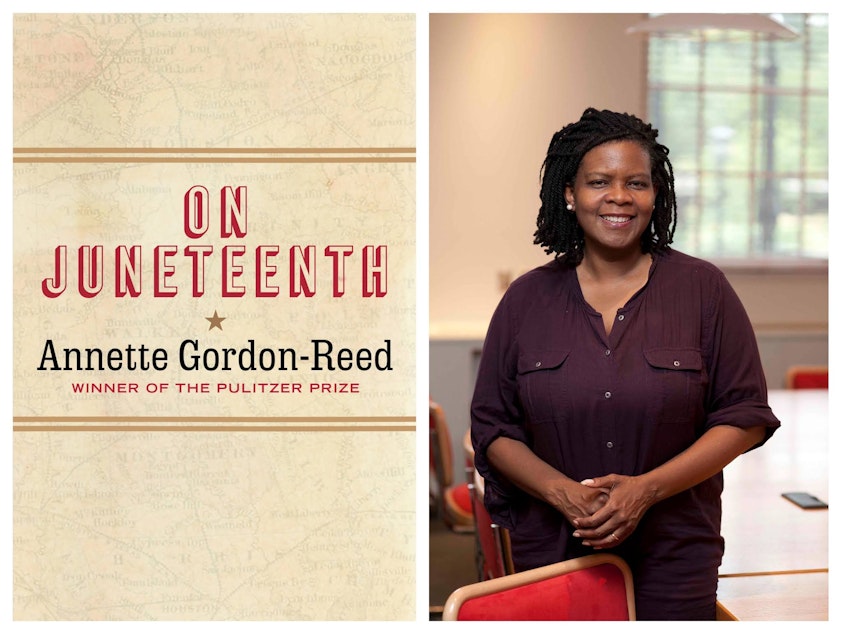In 'On Juneteenth' Annette Gordon-Reed chronicles hardship and joy on the path to Black freedom

On Tuesday, the Senate unanimously passed the Juneteenth National Independence Day Act. The next day, cheers erupted in the House chamber as bill sponsor Rep. Sheila Jackson Lee read the final vote tally, 415-14.
When President Joe Biden signed the bill into law on Thursday, it marked the first time in nearly four decades the United States has recognized a new federal holiday.
Most of us now know something about Juneteenth. The day commemorates an important coda to the end of slavery in this country. In his article “So You Want to Learn About Juneteenth?" New York Times reporter Derrick Bryson Taylor offers this primer:
"On June 19, 1865, about two months after the Confederate general Robert E. Lee surrendered at Appomattox Court House, Va., Gordon Granger, a Union general, arrived in Galveston, Texas, to inform enslaved African Americans of their freedom and that the Civil War had ended. General Granger’s announcement put into effect the Emancipation Proclamation, which had been issued more than two and a half years earlier on Jan. 1, 1863, by President Abraham Lincoln."
Since the late 1800s, African Americans have been celebrating Juneteenth as a recognition of emancipation, resistance, and Black joy. Many other Americans were reluctant, to say the least, to join the celebration. The country as a whole was slow to honor the significance of the day.
History professor Annette Gordon-Reed is the author of On Juneteenth. The work combines memoir and essays, and it examines the stories of Black people who knew their supposed emancipation would not deliver to them the kind of freedom white people enjoyed. Decades of discrimination and oppression followed that day in Galveston. Slavery was abolished, but Jim Crow laws created new ways to enforce racial segregation in the United States. Black Americans were often attacked for even daring to celebrate Juneteenth.
Professor Gordon-Reed teaches at Harvard University. She received a Pulitzer Prize for her book The Hemingses of Monticello. She was interviewed here by Marcus Harrison Green, the founder and publisher of the South Seattle Emerald, and a columnist for The Seattle Times.
Sponsored
Town Hall Seattle and the Northwest African American Museum presented their conversation on June 14, 2021.


